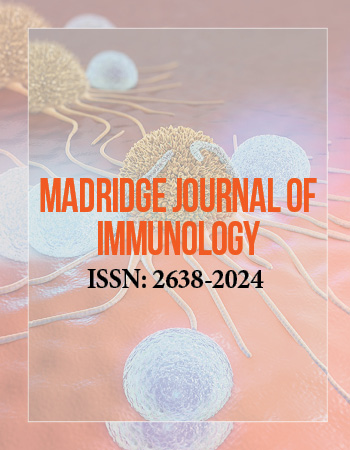International Conference on Immunology and Immunotechnology
November 1-3, 2017 Barcelona, Spain
Combination Therapy of Ultrasound Hyperthermia and Immunostimulant Enhances Systemic Antitumor Immunity for Cancer Tumor Treatment
1Institute of Biomedical Engineering, Taiwan
2Graduate Institute of Immunology, National Taiwan University, Taiwan
Objective: To evaluate whether antitumor immunity is enhanced systemically by combining pulsed-wave ultrasound hyperthermia (pUSHT) and local injection of an immunostimulant, OK-432.
Methods: BALB/c mice were inoculated with CT26-luc-GFP tumors on both flanks as a bilateral tumor model. The treated-side tumor underwent a 10-day treatment with pUSHT and/or subcutaneous injection of OK-432. The untreated-side tumor was used to assess the degree of anti-tumor immune response systemically induced by different therapeutics. In a rechallenge tumor model, a rechallenge tumor was implanted contra laterally after the treated-side tumor experienced a 5-day treatment and then surgically removed. This model was designed to evaluate the establishment of a long-term active tumor-specific immune memory for preventing tumor recurrence.
Results: The tumor growth rate and growth activity of both treated and untreated tumors were significantly inhibited with the OK+pUSHT combination treatment. Systemic anti-tumor effect seemed to be prolonged. The results of IF and H&E staining showed that there was a remarkable increase of NK cell infiltration in the tumor and an earlier necrosis area for the combination treatment. Survival rates significantly increased for the OK+pUSHT group. In the rechallenge test, the volume of all reimplanted tumors decreased and then disappeared as compared with the control group.
Conclusion: Combining pUSHT with local injection of immunostimulant OK-432 for a local tumor treatment may lead to activation of systemic antitumor immunity.
Biography:
Win-Li Lin received his Ph.D. degree from the University of Arizona, USA, in 1990. He joined the faculty of National Taiwan University in 1992 and became a full professor in 2001. He has been interested in biomedical engineering research, particularly in the area of ultrasound thermal therapy for tumor treatment, blood-brain barrier disruption with focused ultrasound and microbubbles, targeted nano drug delivery with focused ultrasound for central nervous system diseases and tumors, and development of high-power ultrasound devices for medical uses with magnetic resonance imaging guidance. Recently, his research is focused on developing methods to kill the primary tumor, including cancer stem cells, and the metastatic tumors.


